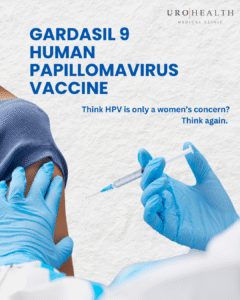It is a misconception that a virgin will never contract a sexually transmitted disease (STD). A second commonly held false belief is that the spread of STDs can completely be prevented with the use of a condom.
Surprised? Let us first take a closer look at the tiny organisms which are responsible for so much human suffering.
Sexually transmitted infections can be caused by viruses, bacteria and parasites.
Human Immunodeficiency Virus (HIV), Human Papillomavirus (HPV), Herpes Simplex Virus (HSV), Hepatitis B and Hepatitis C are viruses which can be transmitted sexually.
One can think of a virus as a code which tricks human cells into becoming factories to replicate more viral microbes. Once the virus infects a person, it can remain inside the body permanently and would usually cycle through phases of dormancy and activity. During periods of dormancy, the infected host does not have any symptoms nor any physical manifestation of the disease. At opportune moments, viruses awaken and start building their armies.
HIV attacks the immune system and leads to the infected individual becoming more susceptible to sickness and developing certain cancers. HPV can cause the growth of warts and increases the risk of cancers of the cervix, vagina, penis, mouth, throat and anal region. Those with HSV may form cold sores around the mouth or genitals. Both the hepatitis viruses infect the liver and can cause liver cirrhosis and cancer .
During an active viral infection, medications can be given to help suppress the activity of the virus, shorten the duration of sickness and lower the viral load within the body. Even with the resolution of the active infection, STD viruses still remain hidden in individuals and render them potentially infectious to their partners.
Chlamydia, gonorrhea and syphilis are some of the more well known bacterial STDs. Chlamydia and gonorrhea usually cause painful urination and abnormal genital discharge while syphilis typically cause painless hard sores to appear.
Fungal infections such as candidiasis, tinea cruris, and tinea corporis are not generally considered to be STDs but can certainly be transmitted during intercourse. Common symptoms include itching, soreness, red spots, blisters and genital discharge.
Fortunately in the case of bacterial STDS, antibiotics can be utilized to eliminate the bacteria from the infected individual. Similarly, antifungal medications can be administered to eradicate fungal infection of the affected regions.
In my clinical practice, I have treated patients who contracted STDs after visiting massage parlors and hair removal salons. That should not turn one away from massages or waxing. I would recommend sticking to reputable establishments with high standards of hygiene and to avoid undergoing massage of the genital region.
STDs are usually spread during the exchange of bodily fluids. Thus STDs can potentially be transmitted during oral sex or when saliva is used as a lubricant around the genitals. One can also get infected through skin to skin contact with infected sores, warts or wounds.
One of my patients developed chlamydia infections of her eyes and throat after oral intercourse with her partner. Fortunately, her symptoms were clearly apparent which led her to seek treatment early. Patients who contract HPV are unusually unaware and symptoms may only manifest decades later with the development of cancers in the mouth, cervix or genitals.
When used correctly, a condom does confer the user a greater degree of protection against certain infections such as human immunodeficiency virus (HIV), syphilis, gonorrhea and chlamydia during intercourse. However the extent of the protection remains confined to the area covered by the condom.
Here are some ways to reduce the risk of contracting an STD:
- Abstinence from sex, including oral intercourse.
- Going for vaccinations to protect against Hepatitis B and HPV. These vaccinations do not confer protection against other STDs.
- Practicing monogamy with a single partner who has been tested and cleared of STDs.
- Using a latex condom during intercourse. Ensure that the condom is properly applied and changed with any new sexual activity (eg from oral to genital).
- Male circumcision has been shown to reduce the risk of a man contracting HIV, HPV and Herpes.
- Avoid sharing towels and underwear.
If untreated, STDs can cause serious issues such as infertility, scarring of the lower urinary tract, transmission during childbirth and cancers. One should see a medical provider if he or she is keen to screen for STDs. Early treatment of both the individual and the sexual partner can reduce the risk of complications and transmission.











